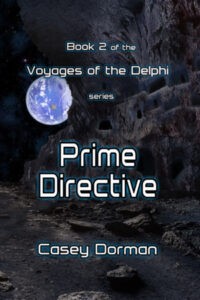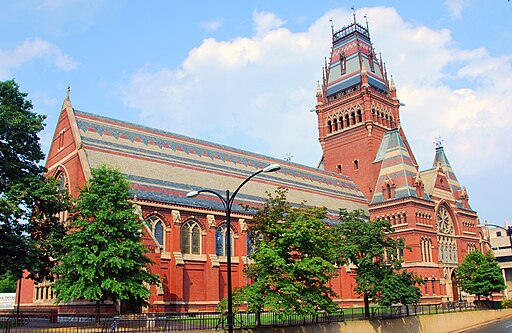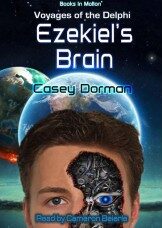
The way our universities work today is a topic on many people’s minds. It’s a topic not limited to one issue. Cost is an issue, as are admission practices. Even after students get on campus there are still debates about what a college education is for. Is it to increase a student’s eventual employability and income level, or is it to educate them in a broad range of knowledge and to sharpen their critical thinking and reasoning skills?
Despite all the above debates, the one that brings out the most emotions is about whether institutions of higher education are biased toward a certain socio-political philosophy, and whether their adoption of that philosophy is channeling their students’ education along certain narrow socio-political lines.
A lot of evidence points to the conclusion that most colleges and universities in the U.S. have a liberal-progressive bias. A disclaimer: my own socio-political philosophy is liberal-progressive or left-leaning. Nevertheless, I am alarmed when people with different veiwpoints are not allowed to speak on campus, and I’m even more alarmed when it’s the students who ban them than when it’s the university administration, because that means the students have bought into the “only one opinion allowed on this campus” philosophy. But I don’t see the particular socio-political philosophy most American universities share as the culprit. I see the present socio-cultural situation in America as the cause of it. After all, in Florida, the opposite philosophy is banning “woke” professors, speakers, lecturers and books. So everybody nowadays only wants to hear one side of most issues.
I can complain about our society’s narrow-mindedness, but that probably (certainly) won’t change anything. On the other hand, as a former university professor and dean, I may be able to affect the behavior or attitudes of at least a few professors and campus administrators, perhaps even students. What really bothers me is a basic issue about educating other people, especially youth for whom I had the responsibility of providing an education on topics that are complex enough to be taught at a college level. In fact, this would be an issue even if universities or their professors and students showed no systematic biases. The problem is this: In order to adequately educate a student, I believe it is necessary to provide as complete as possible picture of the subject you are teaching, which includes those facts, studies, articles, books and opinions that both agree with and disagree with your own. I don’t mean presenting unsubstantiated beliefs, conspiracy theories, or ideas that fall outside of the broad realm of accepted ideas within your field. A biologist can teach evolution without teaching creationism as an alternative theory, since creationism doesn’t fall within the accepted realm of scientific biological theories, because that isn’t the type of theory it is. A historian can teach about slavery in the Americas without teaching modern theories that dismiss the evils of slavery or imply that one race is somehow better than another. In such a case, however, a complete study of the why and how of slavery ought to include examination of the details of racist ideas of the time that allowed otherwise enlightened men to own slaves, of economic issues that supported or promoted slavery and, in the South, made people believe it was necessary, of religious ideas that justified slavery, etc. so that a student could understand how such a large segment of American society could support such a practice, i.e., how they thought. To not teach those things would be to provide only a partial education on understanding slavery. At the same time, someone who taught all of those things without examining the life of slaves, the voices that came out of slavery, the effects of slavery upon the psyche of those enslaved, the disruption of family coherence and stability caused by treating slaves as property and selling family members, the centuries-long effects of a race’s having been treated as slaves in terms of their social and economic progress, and telling these things, preferably, in the words of those who endured slavery, and the more than a century of discrimination that followed it, would not be providing a complete picture. To teach students only one half of these things because the other half is labeled “racist ideology” on the one hand or “critical race theory” on the other, is dishonest from an intellectual point of view, and the students who are subjected to such curtailed teaching will be only partially educated.
Some will argue that all knowledge is from a point of view, and the educator’s role is to select the right point of view around which to shape the story they are teaching. They will say that it’s not true that all points of view are equally valid, nor is it true that students should be left to form their own point of view without the educator trying to shape it. I agree with that. All points of view are clearly not equally valid on any topic I can think of. Only poor teaching of how to evaluate different points of view and distinguish the valid from the invalid, the sound from the unsound, and the substantiated from the unsubstantiated would leave a student truly adrift to make their own decisions unaffected by what they learned in class. In most cases, students will be influenced by their professor and adopt some aspects of his or her point of view. But, if they have learned how to evaluate arguments and evidence, they may come to different conclusions than those of their professor. They may weigh some arguments or some evidence more or less heavily than their professor did. The student who does that has a good chance of going on to be a scholar, an informed citizen, and a better teacher to their own children than the student who completely accepts or rejects the professor’s point of view.
Intellectual honesty in teaching does not just apply to socially controversial subjects such as history, ethnic studies, gender studies, and so forth. It applies to all academic subjects. Literary criticism is based on a set of rules, which are constantly changing, about what creates literary “worth.” It includes social relevance, and those things that are socially relevant change over time. It includes theories about representation and, now it includes what distinguishes generative machine output from human-inspired writing and examination of how the worth of the two can be assessed. There are plenty of theories in the field and even more points of view. A well-educated student will be familiar with many, if not most of them and develop their own point of view on the subject, which may or may not agree with their professor’s, but will be influenced by it. A well-educated student who finishes a course on Shakespeare’s plays will have learned tools to use in appreciating, understanding and evaluating the plays, not just a point of view taught to them by their professor.
When I taught, I taught psychology. It is a field in which not a single point of view, theory, or set of facts goes unchallenged . I had my favorite theories, those I doubted, and those I completely rejected. Psychologists like to think of their field as a science. That means there are some agreed upon procedures for evaluating ideas, theories, hypotheses and explanations of psychological phenomena. Some of the procedures are so complex that there are professors who specialize just in the evaluation procedures, such as statistics, or brain imaging, or observing animals in their natural habitats. I knew professors who subscribed to a particular theory and interpreted all phenomena in terms of that theory (e.g., Freudians, Skinnerians, Chomskyite psycholinguists, computationalists). In my opinion, then and now, these professors had an obligation to teach not just what they believed, but also alternative theories and the evidence that supported those other theories or raised questions about their own. In doing so, they would produce more informed students, capable of evaluating ideas on their own, but fully aware of their professor’s reasons for favoring his or her point of view.
I think if every professor tried to provide education using the framework I have suggested, we wouldn’t have to worry as much about our college and universities being biased (though we should continue to worry). To do less is intellectually dishonest, and to be intellectually dishonest when teaching at a university is not ethical.
Can an AI be superintelligent, and if so, should we fear it? Read Casey Dorman’s novel, Ezekiel’s Brain on Amazon. Available in paperback and Kindle editions
Rather listen than read? Download the audio version of Ezekiel’s Brain from Audible.
Coming soon! The second novel in the Voyages of the Delphi series: Prime Directive. Release date: November 7, 2023.

Subscribe to Casey Dorman’s Newsletter. Click HERE






